Manufacturers can use production planning within their ERP software to reap huge benefits including reduced wastage, increased customer satisfaction, greater profitability and enhanced quality management.
In this post, we explore production planning in ERP, the benefits, challenges and best practices, plus look at some of the best production planning ERP software on the market.
The Basics of Production Planning in ERP
Production planning involves a range of activities that help businesses manage their production processes effectively. At its core, production planning is about ensuring that resources, such as raw materials, equipment, and labor, are available when needed to manufacture products. This is where ERP systems come into play, as they provide a centralized platform for businesses to manage their production planning activities.
One of the key components of production planning in ERP is forecasting and demand planning. This involves using historical data, market trends, and other inputs to forecast future demand for products. Based on this forecast, businesses can develop production plans that ensure they have the right materials and resources available to meet customer demand.

Another important aspect of production planning in ERP is inventory management. Accurate inventory data is essential for effective production planning, as it helps businesses understand what materials are available and when they will need to be replenished. ERP systems can automate inventory tracking and management, providing real-time visibility into stock levels, reorder points, and lead times.
Finally, ERP systems can help businesses manage their production schedules and workflows. This involves coordinating resources, such as labor and equipment, to ensure that production runs smoothly and efficiently. ERP systems can provide real-time updates on production progress, enabling businesses to make adjustments as needed to meet deadlines and maintain quality standards.
Key Features of Production Planning in ERP
Production planning in ERP involves a range of modules and features that work together to optimize production processes and minimize waste. Here are some of the key features of production planning in ERP:
-
Capacity planning: Capacity planning involves assessing the available resources, such as labor and equipment, and ensuring that they are being used efficiently to meet production goals. ERP systems can help businesses optimize their capacity planning by providing real-time data on resource utilization, identifying bottlenecks, and suggesting ways to improve efficiency.
-
Material requirements planning (MRP): MRP is a critical component of production planning, as it involves managing the flow of materials and ensuring that they are available when needed. ERP systems can automate the MRP process by providing real-time visibility into inventory levels, lead times, and reorder points. This enables businesses to optimize their inventory management and ensure that they have the right materials available to meet production goals.
-
Shop floor control: Shop floor control involves managing the production processes on the shop floor, including tracking the progress of orders, managing work orders, and monitoring quality control. ERP systems can provide real-time updates on production progress, enabling businesses to make adjustments as needed to meet deadlines and maintain quality standards.

4. Quality control: Quality control is a critical component of production planning, as it ensures that products meet the required quality standards. ERP systems can provide real-time visibility into quality control processes, enabling businesses to identify and address quality issues quickly.
Production Planning ERP Software
1. SAP S/4HANA
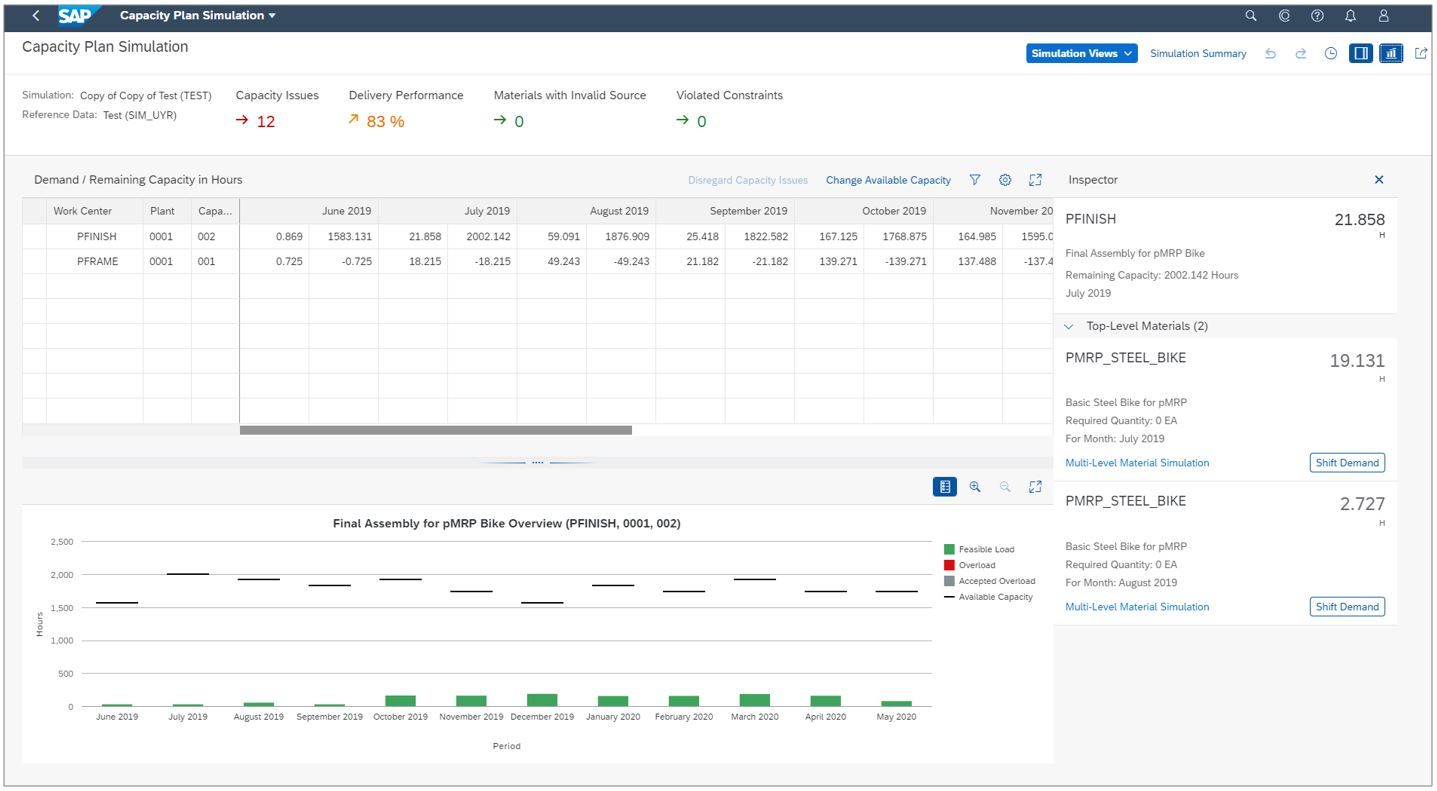
SAP S/4HANA is a comprehensive and integrated ERP solution designed for businesses of all sizes. Its production planning capabilities include capacity planning, MRP, shop floor control, and demand-driven production planning. With real-time data and insights, SAP S/4HANA enables businesses to optimize their production processes and respond quickly to changing market demands.
Read our full SAP S/4 HANA Guide >>>
2. Microsoft Dynamics 365 for Finance and Operations
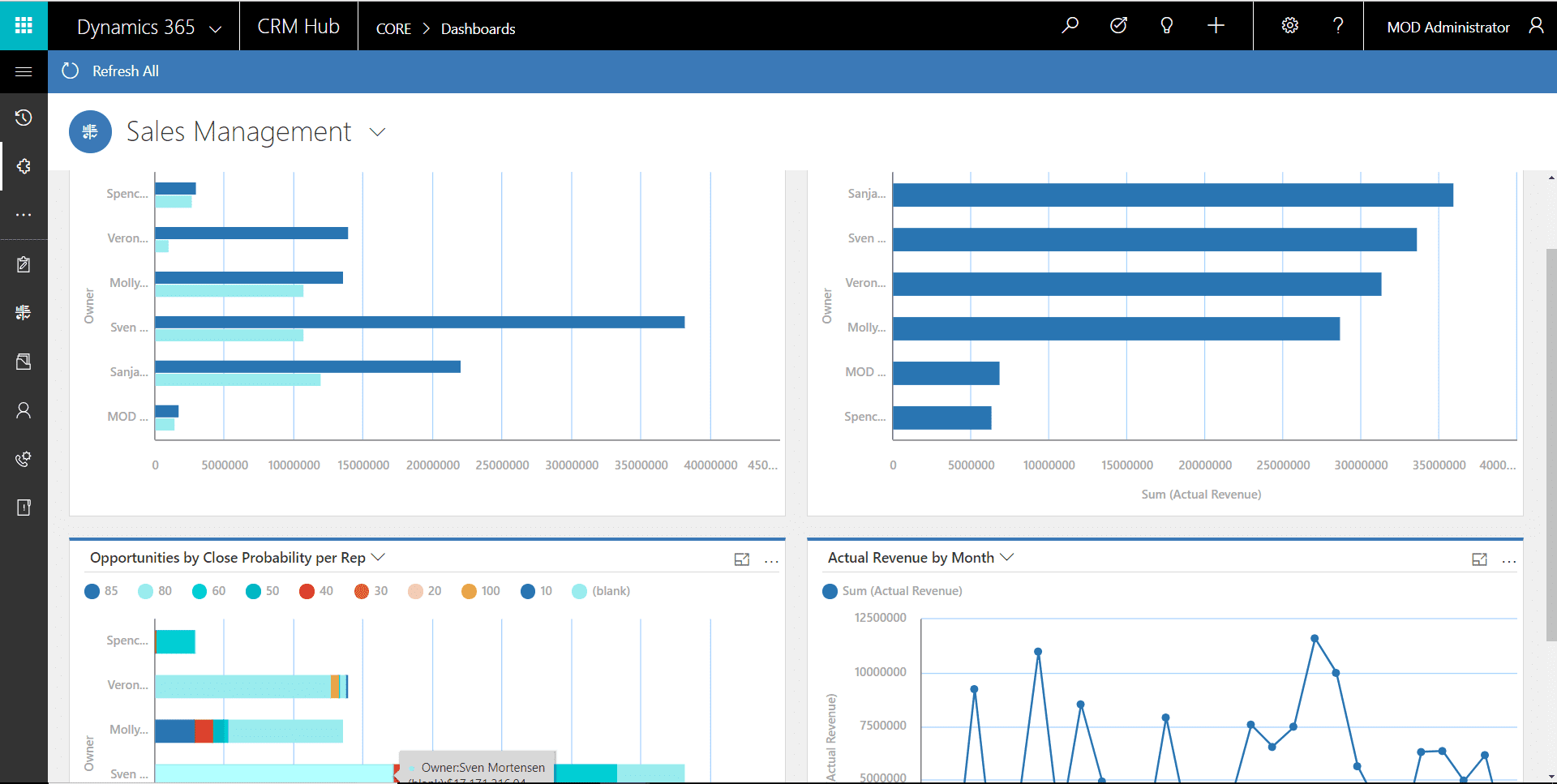
Microsoft Dynamics 365 is a cloud-based ERP system that offers a range of modules for financial management, supply chain management, and production management. Its advanced production scheduling module enables businesses to create and manage production schedules that are optimized for efficiency, while its capacity planning and MRP modules provide real-time data and insights into production workflows.
Read our full Microsoft Dynamics Guide >>>
3. Oracle NetSuite
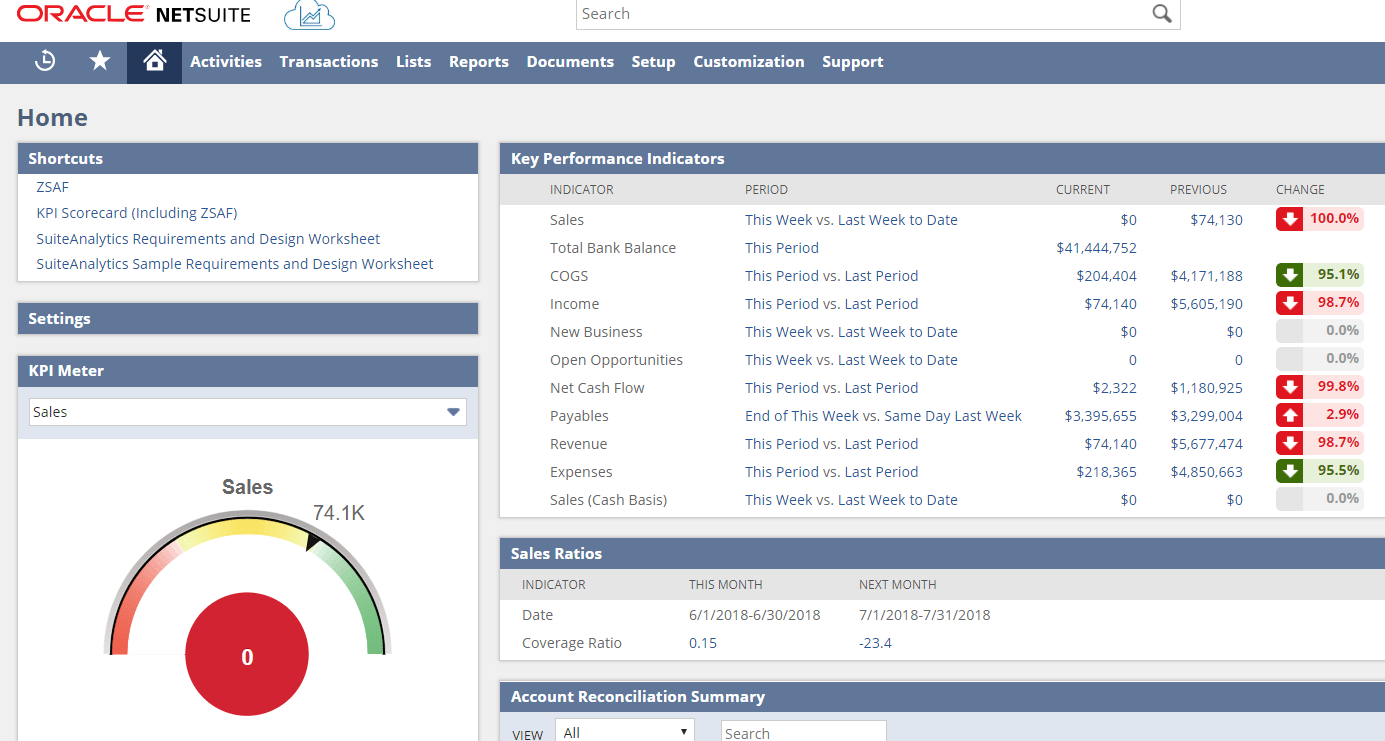
Oracle NetSuite is a cloud-based ERP system designed for businesses of all sizes. Its production planning capabilities include capacity planning, MRP, shop floor control, and demand planning. With real-time visibility into production processes, Oracle NetSuite enables businesses to optimize their production workflows and minimize waste, leading to increased efficiency and productivity.
Read our full NetSuite Guide >>>
4. Infor CloudSuite Industrial
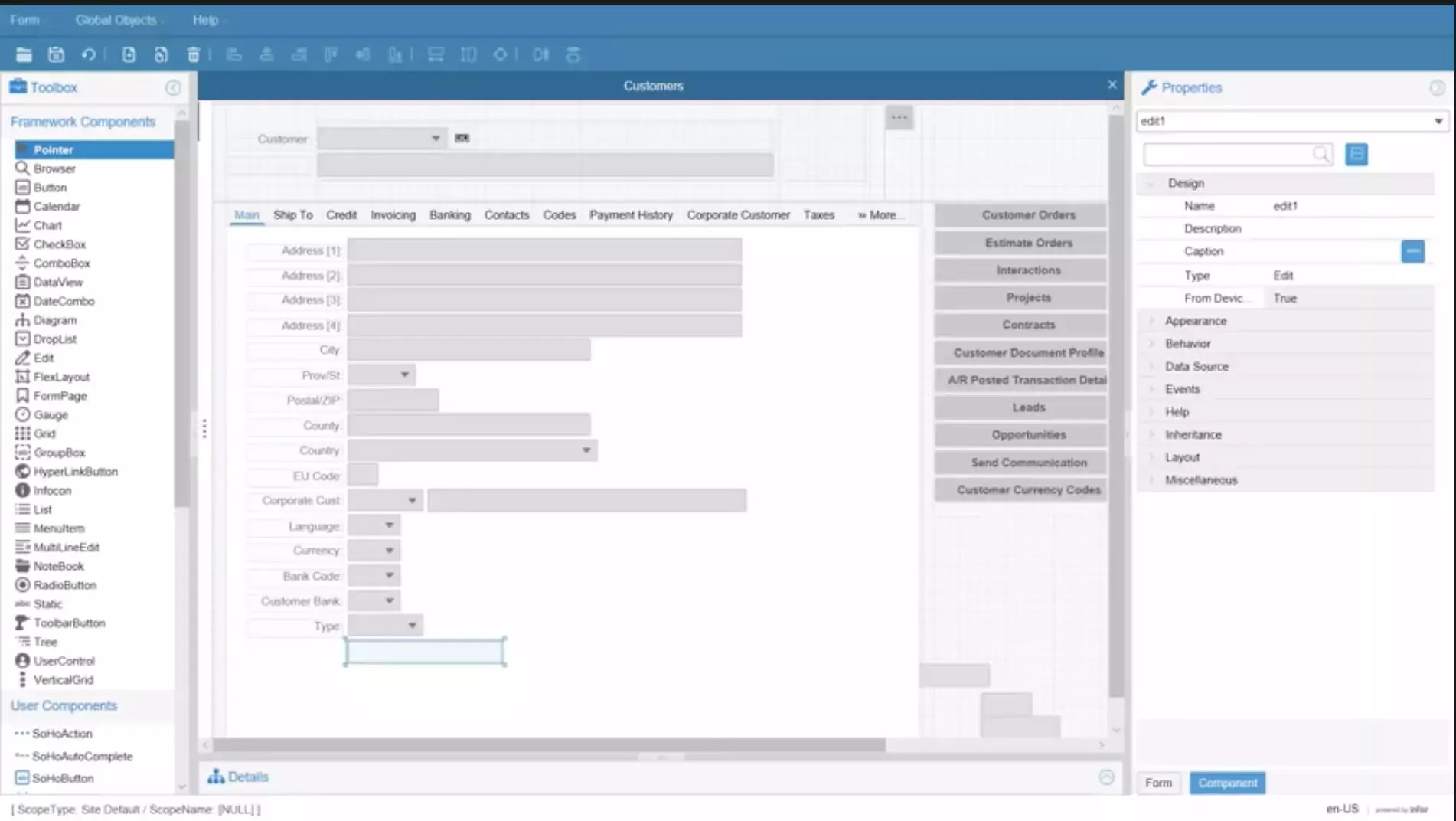
Infor CloudSuite Industrial is a comprehensive ERP system designed specifically for manufacturers. Its finite capacity scheduling module enables businesses to create production schedules that are optimized for efficiency, while its capacity planning and MRP modules provide real-time data and insights into production workflows. With advanced features like shop floor control and quality control, Infor CloudSuite Industrial helps businesses streamline their production processes and improve quality control.
Read our full Infor CloudSuite Industrial Guide >>>
5. Epicor ERP
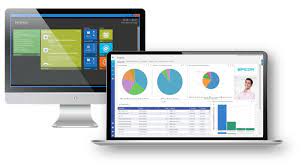
Epicor ERP is an ERP system designed for manufacturers in a range of industries. Its advanced planning and scheduling module enables businesses to create production schedules that are optimized for efficiency and minimize downtime, while its capacity planning and MRP modules provide real-time data and insights into production workflows. With modules for quality control and supply chain management, Epicor ERP helps businesses optimize their production processes and achieve long-term success.
Read our full Epicor ERP Guide >>>
Benefits of Production Planning in ERP
Implementing production planning in ERP can provide a range of benefits for businesses. Here are some of the key benefits:
-
-
Increased efficiency and productivity: By providing real-time visibility into production processes, ERP systems can help businesses optimize their production workflows and minimize waste. This can lead to increased efficiency and productivity, as well as reduced lead times and inventory costs.
-
Reduced lead times and inventory costs: Effective production planning in ERP can help businesses minimize lead times and inventory costs by ensuring that materials and resources are available when needed. This can help businesses respond quickly to changing market demands and reduce the costs associated with excess inventory.
-
Improved quality control and customer satisfaction: Production planning in ERP can help businesses ensure that products meet the required quality standards and are delivered on time. This can lead to improved customer satisfaction and increased loyalty, as well as reduced costs associated with returns and rework.
-
Real-time data and insights: ERP systems provide real-time data and insights into production processes, enabling businesses to make data-driven decisions and respond quickly to changing market demands. This can help businesses stay ahead of the competition and improve their overall performance.
Challenges and Best Practices for Production Planning in ERP
While production planning in ERP can provide a range of benefits for businesses, it can also pose some challenges. Here are some common challenges that businesses may face when implementing ERP for production planning:
-
Complex implementation: ERP systems can be complex and require significant resources to implement effectively. Businesses may need to invest in training, consulting, and customization to ensure that the system meets their needs.
-
Lack of stakeholder buy-in: Successful implementation of ERP for production planning requires buy-in from stakeholders across the organization. Businesses may need to engage stakeholders early on in the process to ensure that they understand the benefits of the system and are committed to making it work.
-
Data accuracy and consistency: Effective production planning in ERP depends on accurate and consistent data. Businesses may need to invest in data management and quality control processes to ensure that data is reliable and up-to-date.
-
Continuous improvement: Production planning is an ongoing process that requires continuous improvement. Businesses may need to monitor their production processes regularly, identify areas for improvement, and make adjustments as needed to optimize their workflows.
To overcome these challenges, businesses can follow some best practices, such as:
-
Setting realistic goals and timelines: Successful implementation of ERP for production planning requires setting realistic goals and timelines. Businesses should establish clear objectives, identify key performance indicators, and develop a realistic implementation plan.
-
Engaging stakeholders from across the organization: Businesses should engage stakeholders from across the organization early on in the process to ensure that they understand the benefits of the system and are committed to making it work.
-
Continuously monitoring and optimizing production processes: Production planning is an ongoing process that requires continuous improvement. Businesses should monitor their production processes regularly, identify areas for improvement, and make adjustments as needed to optimize their workflows.